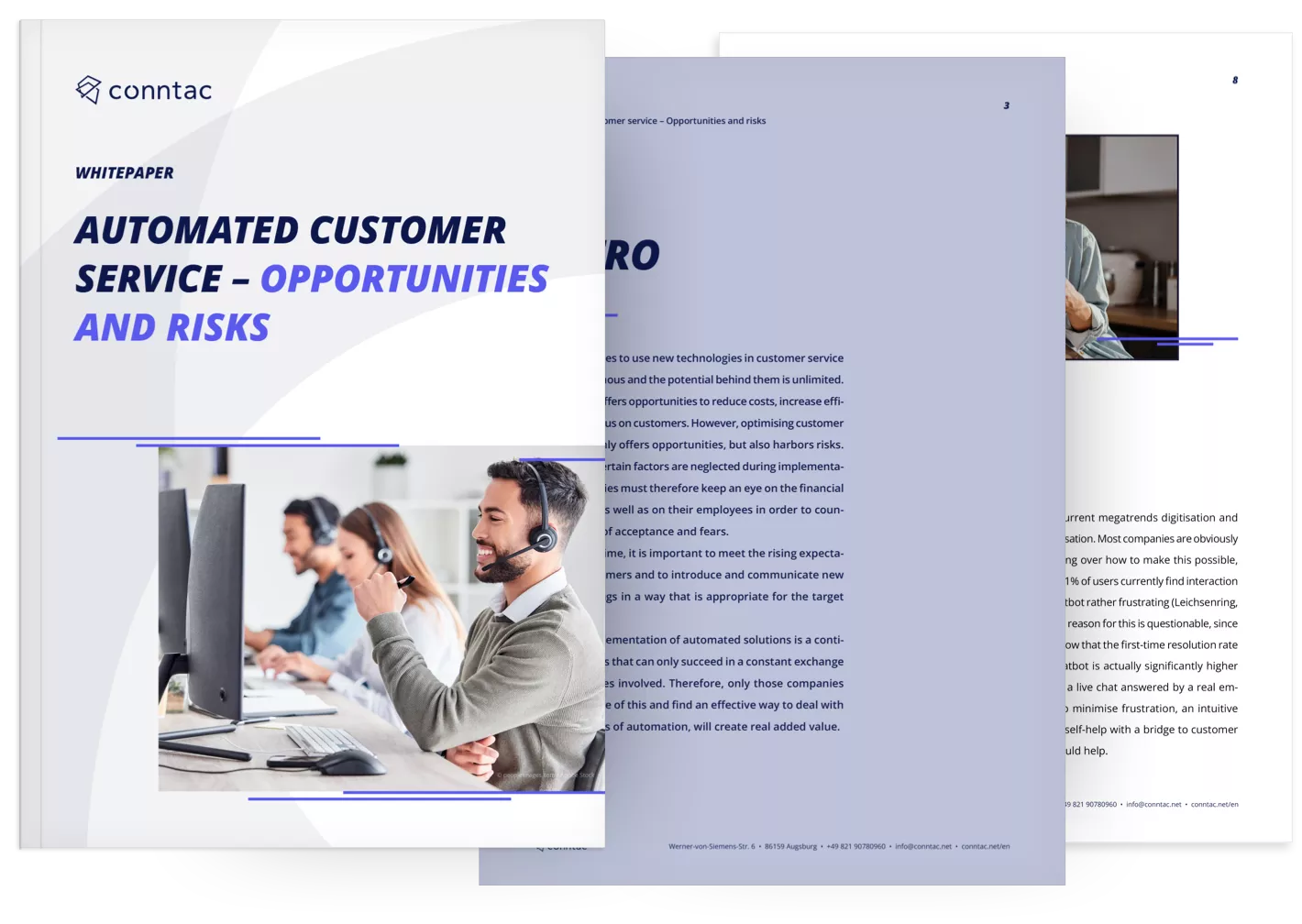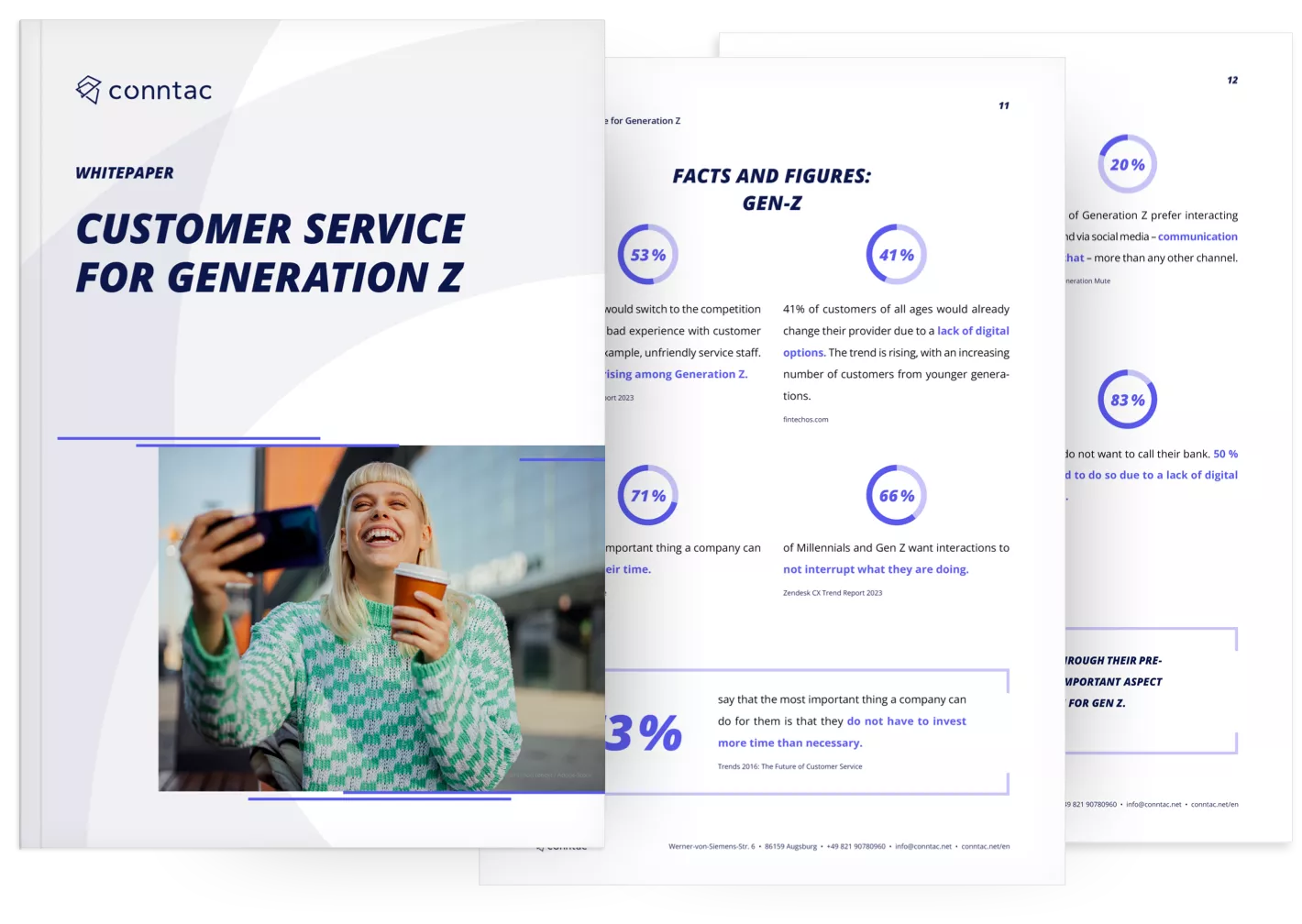In an ever-changing business world where technology plays a key role, it’s no surprise that customer service is no stranger to the latest developments. Artificial intelligence (AI) has the potential to transform customer service and take it to a new level of efficiency and personalisation.
72 per cent¹ of companies in Europe that are already working with AI in customer service are seeing significant benefits, e.g. they see a reduction in the workload of the service department, benefit from increased efficiency and have the ability to offer service around the clock. In addition, according to a study² most executives (78 per cent internationally, 79 per cent in Germany) believe that generative AI will make the development of products and services more efficient, user-friendly and inclusive. They also expect AI technology to make the customer experience more interactive and engaging (71 per cent internationally and in Germany) and customer service to improve through automated, personalised support (67 per cent internationally, 61 per cent in Germany).
In this blog post, we take a look at how Artificial Intelligence is influencing customer service and what opportunities it offers for the future.
Good customer service in the era of AI
In an era where customers are highly connected and more demanding than ever, customer service is becoming the crucial interface between companies and customers. This is where artificial intelligence comes into play. Modern AI technologies such as chatbots and automated processes are revolutionising the way companies interact with their customers.
ChatGPT & Co.: The transformation of the contact centre
The integration of artificial intelligence into customer service goes far beyond simple automation. Technologies such as chatbots, which are based on AI, offer immediate support around the clock and can handle standardised requests autonomously. This allows staff to focus on more complex enquiries and personal contact.
AI as a co-pilot for your agents
One promising aspect of AI in customer service is the idea of an “augmented agent”. AI can support agents by providing relevant information and solutions in real-time. In this way, employees become experts who are empowered by AI to help customers more efficiently.
The future of AI customer service
The evolution of AI customer service is far from over. Over the next five years, we expect to see groundbreaking changes. Companies should prepare to incorporate AI even more into their business strategies to better anticipate customer needs and further improve the customer experience.
AI as a tool to improve the customer experience
One of the main benefits of Artificial Intelligence in customer service is that it can help companies optimise the customer experience. By analysing customer data, AI can help identify customer frustrations and provide personalised solutions. This personalised interaction leads to stronger customer loyalty, greater satisfaction and ultimately brand loyalty.
Not all bots are created equal: understanding the functional differences
It is important to recognise that not all bots are the same. The differences between different bot systems can be significant. Companies should therefore understand the various uses and functional differences of bots in order to get the maximum benefit from them.













